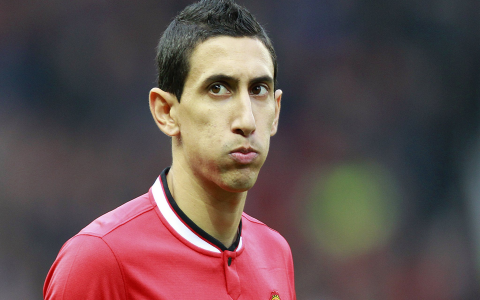A few days ago, I saw someone online ranting that Di María shouldn’t have received his 2016 Champions League medal because he didn’t even play in the final. The moment I heard that, something felt off. Why? Because I knew he’d been playing in the tournament all along. But to get to the bottom of it, I decided to look into it myself. That night, I couldn’t sleep, so I sat up, turned on my computer, and started digging through the records bit by bit.
Why didn’t he play in the final?
Let’s be clear: Angel Di María didn’t play in the 2016 Champions League final. He wasn’t substituted by the coach, nor was he suspended—he was injured. Days before the match, he pulled a muscle near his groin during training, an injury so severe it hurt to walk. The doctor ruled him out, and he could only watch from the sidelines. Many people saw this and said, “You didn’t even play—why should you get a medal?””
But the thing is, Champions League medals aren’t just for those on the field on final day. They’re for players who contributed throughout the entire season.
What exactly did he do beforehand?
We can’t just look at the final day. We need to examine his performance throughout the entire Champions League campaign. In 2015, Di María transferred from Manchester United to Paris Saint-Germain. By the 2016 Champions League, he was in exceptional form and a key player for the team.
The pivotal moment came in the quarterfinals against Manchester City. In the first leg, he scored the decisive goal in a 1-0 victory. That goal proved crucial because PSG lost the second leg 1-0 away, forcing the tie to be decided by away goals after the aggregate score was level at 1-1. Without Di María’s opening goal, PSG likely would have been eliminated early. In essence, he single-handedly propelled the team into the semifinals.
Just imagine: without his goal, PSG wouldn’t have reached the final, and none of what followed would have happened. So his contribution wasn’t “a little bit”—it was decisive.
What do UEFA’s rules state?
I specifically looked up UEFA’s regulations. They are very clear: any player who makes at least one appearance for their team in that season’s Champions League and whose team ultimately wins the trophy is eligible for a medal. It doesn’t matter if they played in the group stage or the knockout rounds—any appearance counts.
Di María didn’t just play one game—he featured in multiple matches and scored crucial goals. By the rules, his medal is entirely legitimate and justified. This isn’t an exception; players have previously received medals after missing finals due to injury but having played earlier in the campaign. Take Michael Owen of Liverpool in 2005: he was injured after the semifinals and didn’t play in the final, yet still earned his medal.
Why do some feel it’s unfair?
I believe many who say he “shouldn’t have gotten it” aren’t actually questioning the rules—it’s about emotion. Di María was once a Real Madrid player who helped them win the Champions League in 2014, only to be sold the following year. Many Madrid fans felt he was “abandoned,” leaving them resentful. Later, when he joined Paris and delivered such strong performances in the Champions League knockout stages, it only fueled more discontent.
So when they saw him receive a medal—even as a PSG player—some still wondered, “Why him?” But this is emotional bias, not factual reasoning. Football follows rules; it’s not about popularity or past affiliations.
What did I research?
To verify these points, I examined several sources:
- UEFA’s official medal distribution regulations
- Match footage of PSG vs. Manchester City in 2016 to confirm his actual goal
- The official injury list before the final, confirming his withdrawal due to injury
- Examples of other players receiving medals without playing in the final over recent years
All evidence points to the same conclusion: Di María deserves his medal without question. He didn’t get it through connections or luck—he earned it by scoring crucial goals and giving his all for the team.
My Final Thoughts
Some people insist that “if you didn’t play in the final, you shouldn’t get the medal,” but football isn’t just about the final 90 minutes. A championship is the result of everyone’s hard work throughout the entire season. Di María stepped up in the most crucial match—that’s his value.
If you think it’s unfair, you can go to UEFA and suggest they change the rules. But until the rules change, Di María’s medal is earned, not given.

